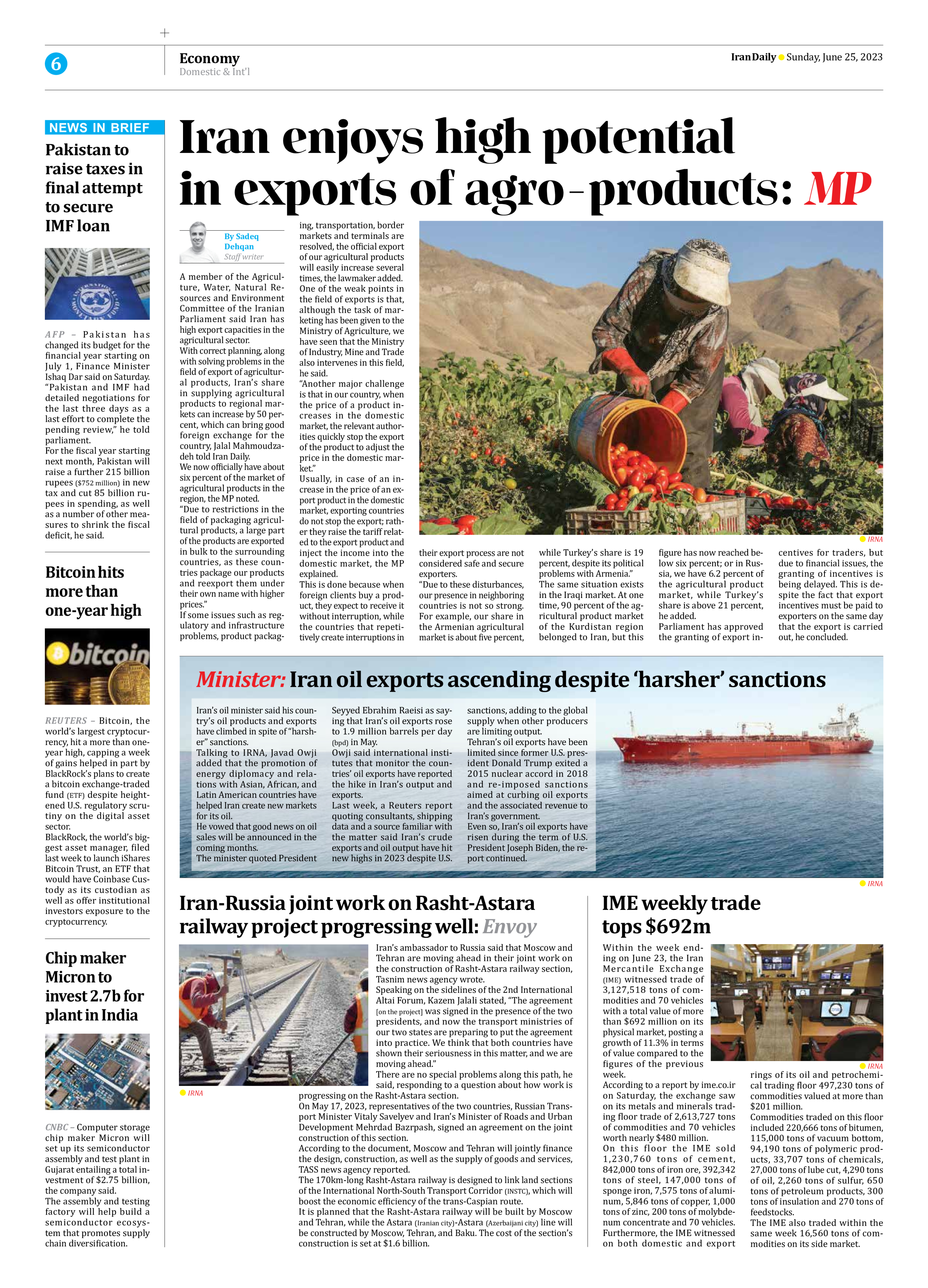
Iran enjoys high potential in exports of agro-products: MP
By Sadeq Dehqan
Staff writer
A member of the Agriculture, Water, Natural Resources and Environment Committee of the Iranian Parliament said Iran has high export capacities in the agricultural sector.
With correct planning, along with solving problems in the field of export of agricultural products, Iran’s share in supplying agricultural products to regional markets can increase by 50 percent, which can bring good foreign exchange for the country, Jalal Mahmoudzadeh told Iran Daily.
We now officially have about six percent of the market of agricultural products in the region, the MP noted.
“Due to restrictions in the field of packaging agricultural products, a large part of the products are exported in bulk to the surrounding countries, as these countries package our products and reexport them under their own name with higher prices.”
If some issues such as regulatory and infrastructure problems, product packaging, transportation, border markets and terminals are resolved, the official export of our agricultural products will easily increase several times, the lawmaker added.
One of the weak points in the field of exports is that, although the task of marketing has been given to the Ministry of Agriculture, we have seen that the Ministry of Industry, Mine and Trade also intervenes in this field, he said.
“Another major challenge is that in our country, when the price of a product increases in the domestic market, the relevant authorities quickly stop the export of the product to adjust the price in the domestic market.”
Usually, in case of an increase in the price of an export product in the domestic market, exporting countries do not stop the export; rather they raise the tariff related to the export product and inject the income into the domestic market, the MP explained.
This is done because when foreign clients buy a product, they expect to receive it without interruption, while the countries that repetitively create interruptions in their export process are not considered safe and secure exporters.
“Due to these disturbances, our presence in neighboring countries is not so strong. For example, our share in the Armenian agricultural market is about five percent, while Turkey’s share is 19 percent, despite its political problems with Armenia.”
The same situation exists in the Iraqi market. At one time, 90 percent of the agricultural product market of the Kurdistan region belonged to Iran, but this figure has now reached below six percent; or in Russia, we have 6.2 percent of the agricultural product market, while Turkey’s share is above 21 percent, he added.
Parliament has approved the granting of export incentives for traders, but due to financial issues, the granting of incentives is being delayed. This is despite the fact that export incentives must be paid to exporters on the same day that the export is carried out, he concluded.







